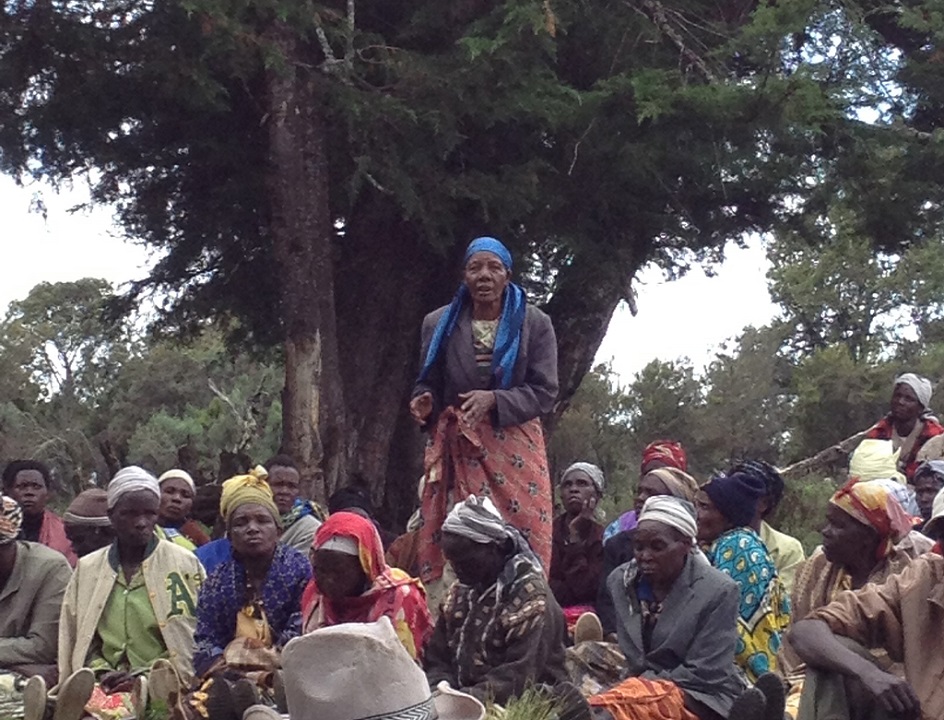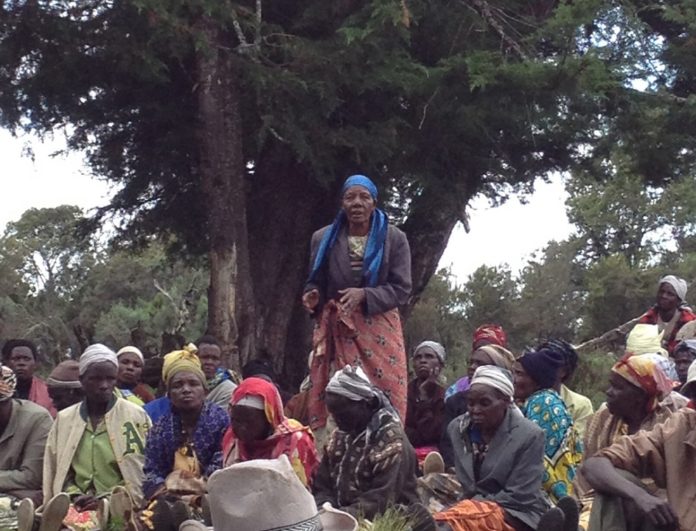|
Getting your Trinity Audio player ready...
|
By Mary Mwendwa
The African Court on Human and Peoples Rights, will soon deliver a long-awaited judgment on a case brought before it, by the Ogiek indigenous peoples against the Kenyan government.
The case is about consistent violations and denial of their land rights which will be heard at its 45thsession on 26 May 2017 in Arusha.
“This case is of fundamental importance for indigenous peoples in Africa, and particularly in the context of the continent-wide conflicts we are seeing between communities, sparked by pressures over land and resources,” says Lucy Claridge, Minority Rights Group International’s (MRG) Legal Director. Adding that “Ultimately the Court will be ruling on the crucial role of indigenous peoples in the conservation of land and natural resources, and consequently, the mitigation of climate change in a region currently ravaged by drought and famine.”

The Ogiek, 35, 000 of whom are the victims in this landmark case, live in the Mau Forest Complex in the Rift Valley of Kenya. They are one of the last remaining forest-dwelling communities and among the most marginalized indigenous peoples in Kenya. They allege eight violations of their rights to life, property, natural resources, development,
They allege eight violations of their rights to life, property, natural resources, development, religion, and culture by the Kenyan government under the African Charter on Human and Peoples’ Rights, to which Kenya is a signatory.
This is the first time the African Court, in operation since 2006, will rule on an indigenous peoples’ rights case and is by far the largest ever case brought before the Court.
It was originally lodged with the African Commission on Human and Peoples’ Rights but was referred for the first time in history to the Court on the basis that it evinces serious and mass human rights violations. MRG, Ogiek Peoples’ Development Program (OPDP) and CEMIRIDE were the three original Complainants before the African Commission.
“This judgment will be a huge milestone for the Ogiek community. We are optimistic that it will be positive, and crucially, that it will be respected by the Kenyan government, including implementation, so that Ogiek can feel complete and enjoy all the basic rights like every other Kenyan,” Notes Daniel Kobei, Executive Director of OPDP.
The case was heard by the Court in November 2014. MRG delivered an oral intervention on behalf of the original Complainants, while two Ogiek community members and other expert witnesses gave testimony. MRG supported 25 Ogiek community members to attend the hearing, and supported a further 40 to view the hearing in Kenya via a live stream from the Court.
In March 2013, the African Court issued a provisional measures order requiring the Kenyan Government to stop land transactions in the Mau Forest and refrain from taking any action which would harm the case, until it had reached a decision. This order, unfortunately, has not been respected.
For decades the Ogiek have been routinely subjected to arbitrary forced evictions from their ancestral land in the Mau Forest by the government, without consultation or compensation.
This has had a detrimental impact on the pursuit of their traditional lifestyle, religious and cultural life, access to natural resources and their very existence as an indigenous people. The Ogiek have a spiritual, emotional and economic attachment to the forest. They rely on it for food, shelter, and identity.
Judgment being delivered on 26 May 2017 via a live web stream direct from the African Court
About Ogiek MRG’s legal cases website














